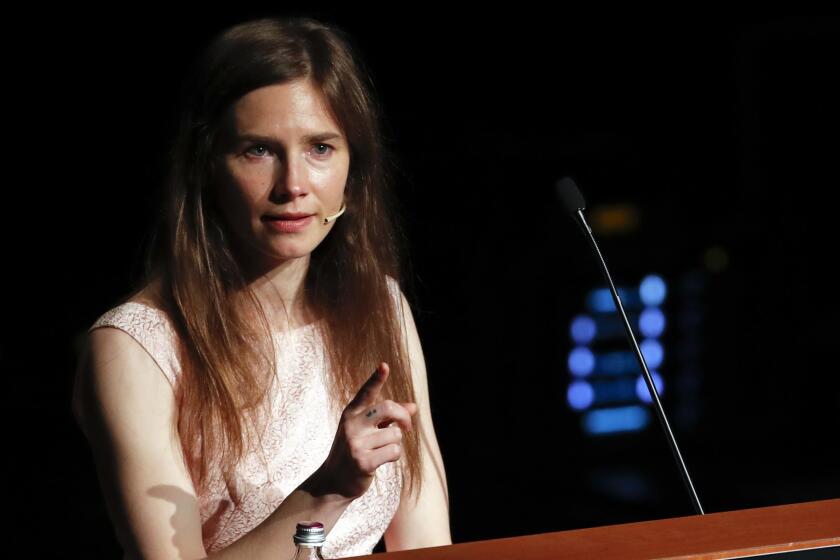The Secret of Ethan’s Wife : ZEENA.<i> By Elizabeth Cooke (St. Martin’s Press: 323 pp., $23.95)</i>
- Share via
This is a rare case where the extrapolation from a classic novel--in this case Edith Wharton’s “Ethan Frome”--works well. Elizabeth Cooke succeeds in recasting one of literature’s most enduring harridans--Zeena Frome--as an astonishingly sympathetic character in this “prequel” to the classic 1911 story.
The questions Cooke seeks to answer are these: What forged the character of Ethan’s embittered wife? What occurred in her background, and in her marriage, to create the frigid silences and resentment between them? What happened to Zeena in the years following the sledding accident that disfigured Ethan and his lover, Mattie Silver? For her imaginative re-creation, Cooke, who has taught the book to literature classes for years, takes the reader back a decade or so before Wharton begins her story.
She returns to the frozen landscape of Starkfield, Mass., the grinding solitude of late 19th century towns and the harshness of farm life. Cooke’s opening lines foreshadow the leitmotifs of cold and imprisonment and of physical wounds that mirror the searing emotional ones: “Frost clung to the insides of the windowpanes like crusted skin. Needles of icy air slipped into the room through the cracks around its only window.”
The language here is more homespun than the severe classical tone of Wharton’s traveler-narrator, for it is always through Zeena’s country eyes and the rough cadence of her voice that we revisit the desolate New England story and its web of tragic disappointments and love affairs.
Cooke gives us glimpses of Zeena’s grim girlhood--the early death of her beloved mother, the emotional distance maintained by her father--before her arrival at the forbidding Frome farm. There, Zeena will nurse Frome’s dying mother and eventually marry Frome.
What she desperately craves is love of the sort she witnessed between her mother and father; ultimately she realizes that what actually underlies it--at least on Ethan’s part--is obligation and, to some degree, convenience. It is this realization that drives Zeena to become the bitter hypochondriac we finally see. She will never--in her eyes--be like the other women he is attracted to and the young Rebekah with whom he has an affair.
Such is the delicacy and realism of Cooke’s humane portrayal that we do not blame but rather empathize with Zeena. Indeed, it is Ethan who comes across least sympathetically: Weak and something of a user, he is cursed by having enough imagination to dream of a better life but not enough courage to fulfill it.
Occasionally Cooke veers toward a sentimentalism and an elated, rather than elegiac, view of love that might have made Wharton wince. How Wharton would view the vaguely feminist slant Cooke has given the story is quite another matter: Wharton, no friend to feminists and fairly bleak in her depiction of love affairs, would no doubt scoff at the somewhat hopeful ending.
But if the classics endure, it’s partly because they are pliant enough and large enough to withstand a bit of literary “spin.” After the unrelieved gloom and starkness of the story, the reader can hardly object to the meager ray of sun that Zeena Frome, in this version at least, seems to merit.
More to Read
Sign up for our Book Club newsletter
Get the latest news, events and more from the Los Angeles Times Book Club, and help us get L.A. reading and talking.
You may occasionally receive promotional content from the Los Angeles Times.








